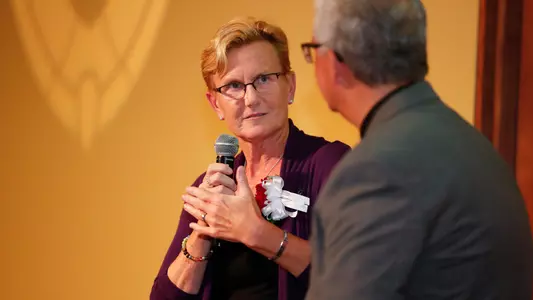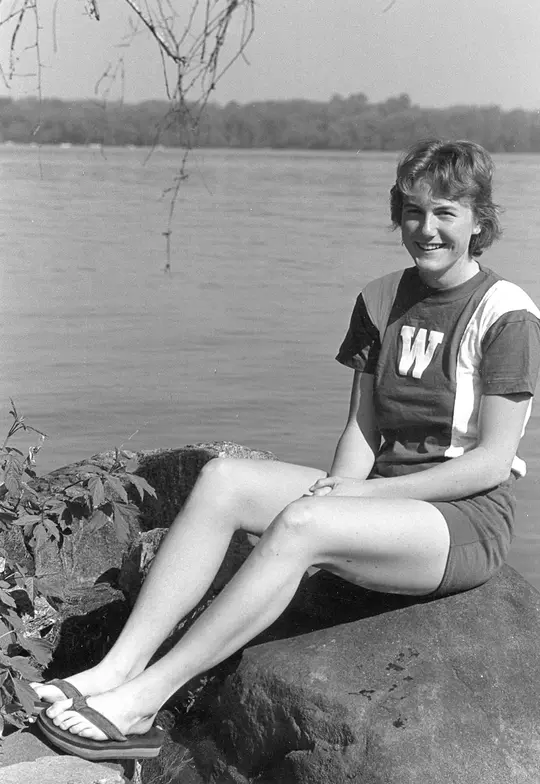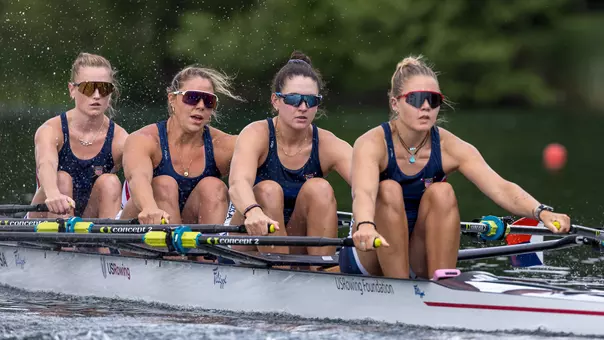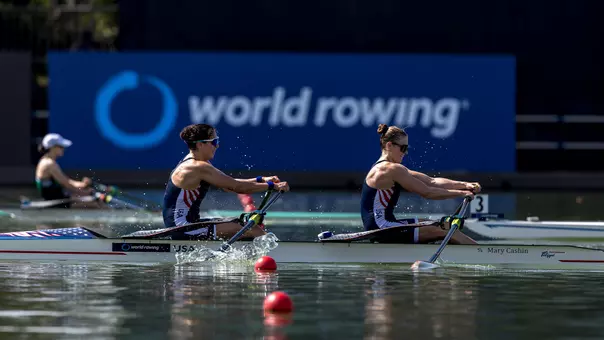
Baggot: UW Olympic row champion now key decision-maker at the Olympics
July 23, 2024 | Women's Rowing, Andy Baggot
Gold medalist Thorsness part of crucial Olympic Court of Arbitration in Paris
BY ANDY BAGGOT
UWBadgers.com Insider
The last time Kris Thorsness visited Paris she was an 18-year-old kid from Alaska, fresh off her senior year in high school, taking part in a tour of Europe. She recalled spending a day or two in the French capitol in the late 1970s, getting a glimpse of places like the Eiffel Tower and the Louvre, not knowing for certain if she would ever return.
“We had guides taking us everywhere,’’ she said. “It was my first European trip and I’ve loved going back there ever since.’’
A lot has happened to Thorsness since then. She attended Wisconsin where she became a world-class rower, an Olympic gold medalist – the first Alaskan, male or female, to do so – and a UW Athletic Hall of Famer. She received a law degree from Boston University and currently works for a firm in Rochester, New York, that specializes in Title IX and gender equity in athletics.
“A subject near and dear to my heart,’’ she said.

Thorsness returned last week to Paris, site of the Summer Olympic Games, where another aspect of her legal expertise will be put on display. She will serve as an arbitrator for the Court of Arbitration for Sport and the U.S. Olympic and Paralympic Committee.
Thorsness said this is her first time as a CAS arbitrator at the Olympics. “It’s a new role for me and I’m absolutely thrilled with it,’’ she said.
In this case, the CAS panel is comprised of three individuals who serve as judges. They preside over a wide range of possible disputes that include eligibility and doping issues to theft and assault. There is no jury.
According to Thorsness, a hearing with witnesses, testimony and evidence take place throughout the Games. She said that during the Summer Olympics in Rio, approximately 28 matters came before that group of arbitrators.
“If that pace holds true, we’ll be pretty busy,’’ Thorsness said.
In most cases, speed is of the essence.
“When disputes arise at the Olympic Games, they usually need to be resolved very quickly due to competition schedules,’’ she said. “Parties can submit their briefs. We can hold a hearing and issue a short-form finding in 24 to 48 hours. Everything moves very quickly, so there are some long nights.
“If someone has a competition coming up the day after tomorrow and there’s a dispute that needs to be resolved before they can compete, then we have to move it along.’’
Thorsness is a two-time U.S. Olympian, having won a gold medal in the 1984 Games in Los Angeles. She said her experiences as an Olympic athlete give her a heightened sense of credibility with those who need to appear before these arbitrators.
“I’ve been told the athletes appreciate having someone like me sitting in judgment if you will because I’ve been through the selection process and I know how terribly stressful and trying it can be,’’ she said. “Even if it turns out well for you, it can still be stressful and trying.’’
Thorsness left last Tuesday and will spend nearly a month in Paris. While she’ll have an all-access credential and first-class accommodations, she’s hoping to see as many events as possible.
“I’m really hoping to have some spare time so that I can do that and be able to see competition,’’ she said. “Watching the competition live is just so, so cool."

























